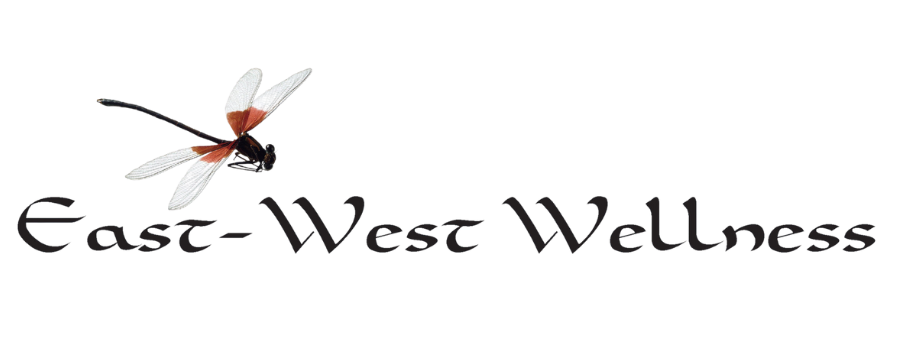Sneezin’ Season: Holistic Relief for Seasonal Allergies
As spring unfolds in Colorado, many residents are once again grappling with the familiar symptoms of seasonal allergies—sneezing, congestion, itchy eyes, and fatigue. This year, however, there's an added layer of concern with a noticeable rise in tick-borne illnesses. These pose a dual challenge: not only can tick bites introduce infections, but they can also add to the body’s inflammatory burden, compounding symptoms in individuals already sensitive to environmental allergens. One growing concern is alpha-gal syndrome, an allergic reaction to a sugar molecule (alpha-gal) found in most mammals, which can be triggered by a bite from the lone star tick. While this tick is primarily found in the South and Eastern U.S., it has been reported in Colorado—albeit less frequently. Fortunately, holistic approaches like functional medicine and acupuncture can offer much-needed support by focusing on prevention, immune modulation, and natural symptom relief.
Understanding Seasonal Allergies
Seasonal allergies, or allergic rhinitis, occur when the immune system overreacts to environmental allergens like pollen, mold, and dust mites. This immune response triggers the release of histamines, leading to inflammation and the classic allergy symptoms. In Colorado, the dry climate and high pollen counts during spring can exacerbate these reactions, making effective management essential.
Functional Medicine: A Root-Cause Approach
Functional medicine focuses on identifying and addressing the underlying causes of health issues, rather than merely treating symptoms. When it comes to seasonal allergies, this approach involves:
Dietary Adjustments: Certain foods can influence allergy symptoms. For instance, high-histamine foods like aged cheeses, cured meats, and fermented beverages may exacerbate reactions. Conversely, a diet rich in anti-inflammatory foods—such as leafy greens, berries, and omega-3 fatty acids—can help modulate the immune response.
Gut Health Optimization: A healthy gut microbiome plays a crucial role in immune regulation. Incorporating probiotic and prebiotic foods like yogurt, sauerkraut, and legumes can support gut health and potentially reduce allergy severity.
Supplementation: While some natural supplements like quercetin, vitamin C, and Diamine Oxidase have shown promise in reducing histamine levels and inflammation, it's essential to consult with a healthcare provider to find the most effective treatment for you.
Acupuncture: Balancing the Body's Energy
Acupuncture, a key component of Traditional Chinese Medicine (TCM), involves inserting fine needles into specific points on the body to restore balance and promote healing. For seasonal allergies, acupuncture can:
Alleviate Symptoms: Targeting points such as Large Intestine 20 (LI20) near the nose and Lung 7 (LU7) on the forearm can help relieve nasal congestion and improve respiratory function.
Modulate the Immune System: By stimulating specific meridians, acupuncture may reduce inflammation and regulate immune responses, addressing the root causes of allergic reactions.
Offer Long-Term Relief: Regular acupuncture sessions can lead to sustained improvements in allergy symptoms, reducing reliance on medications and enhancing overall well-being.
Auricular Acupuncture: A Holistic Approach to Seasonal, Environmental, & Tick-Borne Allergies
Auricular acupuncture is used to treat not only environmental and seasonal allergies, such as pollen, dust, and mold sensitivities, but also allergic responses triggered by tick bites, including reactions associated with alpha-gal syndrome. This broad application makes it a valuable therapy for individuals struggling with heightened inflammation and immune sensitivity.
In a typical treatment session, ear acupuncture is paired with body acupuncture points, and the needles are removed at the end of the visit. In some cases, small adhesive ear seeds or pellets—not needles—may be applied to the ear and left in place for up to five days to reinforce the therapeutic effects between treatments.
One particularly promising method is Soliman’s Auricular Allergy Technique (SAAT), which involves placing a tiny needle in a precise location on the ear, where it remains for several weeks. This technique is designed to help the body gradually reduce its allergic reactivity to a specific allergen. A 2020 study published in the American Journal of Biomedical and Life Sciences reported significant reductions in allergic responses following SAAT treatment, especially for individuals with tick-related allergies.
By targeting the body's regulatory pathways through the ear, auricular acupuncture offers a gentle yet powerful way to help reset immune responses—making it a valuable addition to holistic allergy care.
Integrating Holistic Strategies for Allergy Relief
Combining functional medicine and acupuncture offers a comprehensive approach to managing seasonal allergies:
Personalized Care: Tailoring treatments to individual needs ensure that underlying causes are addressed, leading to more effective and lasting relief.
Natural Symptom Management: By focusing on natural remedies and lifestyle adjustments, patients can minimize side effects associated with conventional medications.
Preventive Measures: Strengthening the immune system and addressing potential triggers proactively can reduce the frequency and severity of allergic reactions.
Conclusion
Navigating seasonal allergies and the added concern of tick-borne illnesses requires a multifaceted approach. Functional medicine and acupuncture provide holistic strategies that not only alleviate symptoms but also address the root causes of allergic reactions. By embracing these natural therapies, Colorado residents can look forward to a more comfortable and vibrant spring season.



